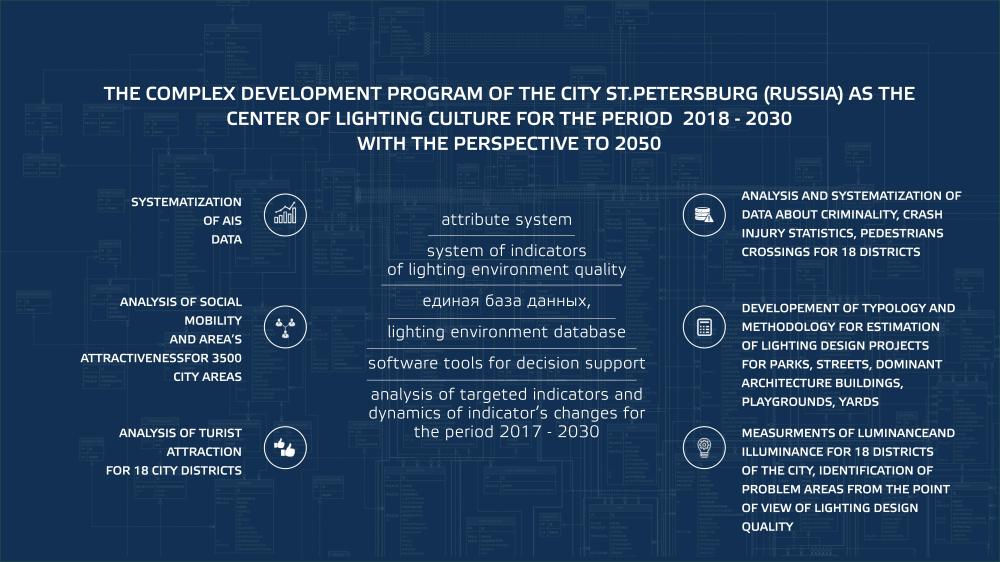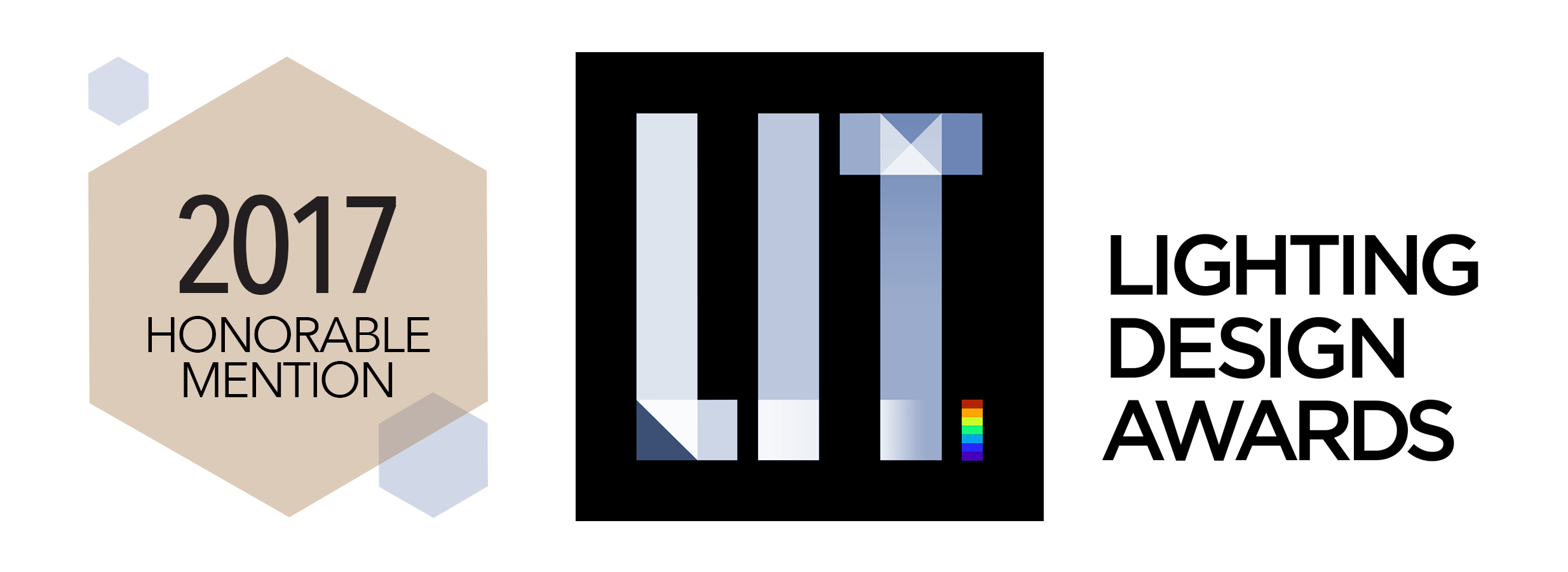Prize(s) Honorable Mentions
Lighting Design/Product Company CLD ITMO University
Lead Designers Natalia Bystriantseva
Completion Date September 2017
Project Location St. Petersburg, Russia
Entry DescriptionThe city of St. Petersburg is launching a flagship research and innovation initiative project with the aim to develop a new urban lighting environment for the period 2018 – 2030 up to 2050. This is the first state project, which combines big data solutions, conceptual analysis and foresight methods to design a sustainable lighting environment that could boost the city’s energy efficiency and considerably improve the quality of life for its residents. The main goal of the work is to create a software package quality control to achieve city's long-term targets.
Principal objective of the integrated analysis is to identify key issues of lighting and urban environment as well as social conditions related to energy efficiency, infrastructure and buildings, lighting engineering, comfort, safety, functionality, transport and traffic flows, social mobility, and city's liveability and attractiveness. The existing Russian and foreign experience in the field of lighting has been analysed and reflected in the development of the master plan. The analysis relies on open source data, confidential and un-confidential data from russian authorities, companies.
During the first step of the project September 2016 – March 2017 there was conducted a complex research of a city lighting environment and developed algorithms and mathematical models allowing to carry out forecasting of light environment development from the point of view of the rational use of budgetary funds. Project was managed by an interdisciplinary team of CLD ITMO University with participation of School of photonics at ITMO University – consisted of scientists, architects, lighting designers, engineers, lighting technicians, marketing specialists, culturologists. The second step of the project April 2017 – March 2018 is aimed on software package implemented by the School of Translational Information Technologies at ITMO University.

